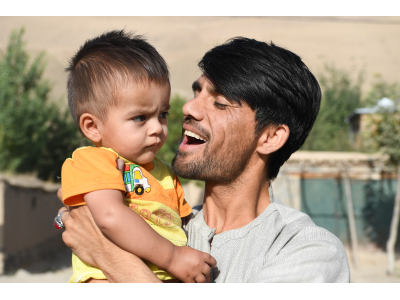This course is available in the following languages:
English, Bahasa, Khmer, Laos, Mandarin, Thai, Tetum, Mongolian, and Vietnamese.
Evaluation is considered a critical tool for UNICEF as it allows the organization to measure the impact of its work for children.
UNICEF always emphasizes the importance of understanding what works, what doesn't work, and why. This continuous process of learning and adapting is essential to drive improvements in our efforts to support every child. To facilitate this process, the EAP Evaluation Specialists at UNICEF have developed an evaluation learning series consisting of concise videos. These videos cover fundamental concepts of evaluation, evaluation management, and national evaluation capacity development. The aim is to provide accessible and informative resources that empower individuals to engage in evaluation practices and contribute to the collective mission of creating a better future for children.
UNICEF remains committed to leveraging evaluation as a powerful tool in ensuring the well-being and rights of every child.
Learning objectives
Series 1. Basics of Evaluation.
At the end of this session, you will:
- Understand better what evaluation is and why it matters
- Have an enhanced appreciation of the evaluation logic and its process
- Have a better capacity to design your evaluations with a mixed-methods approach
Series 2. Evaluation management.
At the end of this session, you will better understand the different evaluation phases from the onset, and how to supervise the evaluation implementation to guarantee the highest standards. You will learn about evaluation scoping, how to procure the evaluation teams or consultants, the inception phase, data collection, reporting, communication and use of the evaluation results.
Series 3. National Evaluation Capacity Development.
In this session, you will learn about the importance of having national evaluation capacities and policies, lessons from different countries, and examples of strategies to develop those capacities.
Audience
These videos are aimed at young people interested in program evaluation as well as UNICEF staff members, implementing partners, and national counterparts.
Length
It should take you about 60 minutes to complete this self-paced course, plus around 10 hours of reading materials.
Methodology
This self-paced course is composed of 3 learning series divided into short modules.
Each module introduces 'key evaluation elements' illustrated by interactive animated videos. The videos walk the learner through the main concepts of each module, facilitating its understanding. All videos are available with transcripts.
Once you have joined the activity, you will be able to select the module you wish to access. Within each module, you can view the videos in the following languages: English, Bahasa, Khmer, Laos, Mandarin, Thai, Tetum, Mongolian, and Vietnamese.
Structure
This course is composed by the 3 following series, divided into a total of 10 short learning modules (videos):
Series 1. Basics of Evaluation.
Series 2. Evaluation Management.
Series 3. National Evaluation Capacity Development.
At the end of each module, participants will be asked to pass a short test in order to move on to the next session. Each session includes a list of links to reading materials. A final activity encourages learners to reflect on their overall experience.
Contact details
Content issues: Jane Mwangi - jmwangi@unicef.org / Wassana Kulpisitthicharoen - wkulpisitthicharoen@unicef.org / Catalina Salazar casalazar@uncef.org / Valentina Ruta vuta@unicef.org
